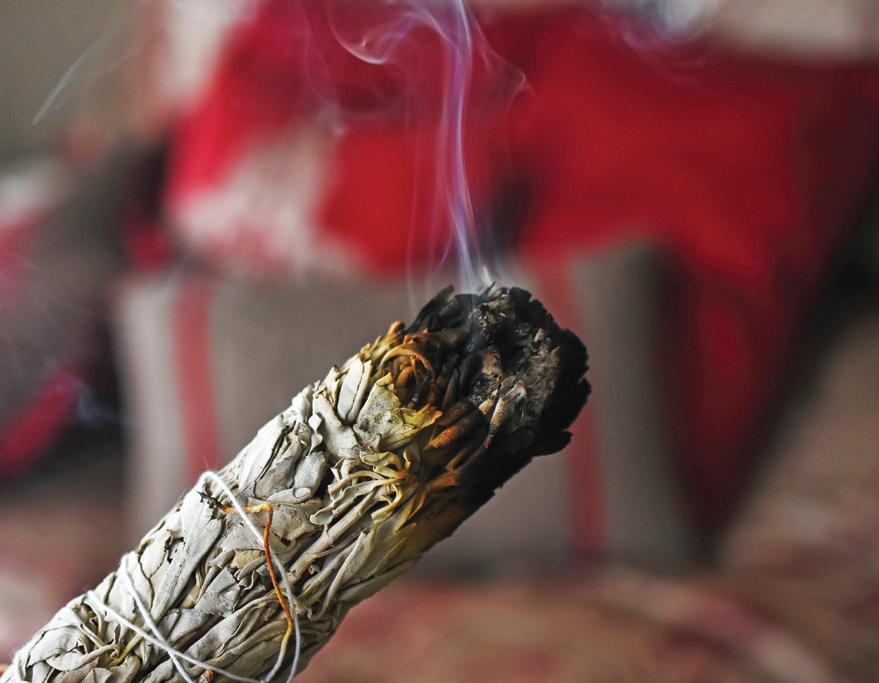
10 minute read
Volume XXIIII 2021

We Survive without Justice:
Advertisement
Sexual Assault Response and Indigenous Women
By Mother Nation
The 1956 Indian Relocation Act sought to eliminate reservations, remove Native people from tribal lands and force assimilation into urban areas. Tribal citizens were relocated to cities, severing Native people from the political protections, teachings and practices, family and social relationships and all the power and possibility of living in Indigenous communities. In cities like Seattle, Cleveland, Chicago and Denver, where relocation offices were established, escalating rates of sexual violence, murdered and missing Indigenous women, trafficking, homelessness and addiction among Native people can be traced back to the removal and relocation practices of this Act.
In Washington State, rates of life-course violence against Indigenous people are staggering. Arlene Red-EIk, Jamestown S’KIaIIam Elder and long-time anti-violence advocate, found in her programs that 98% of Native American domestic violence (DV) survivors and 97% of Native American women managing chemical dependency traced their history of personal violence back to childhood sexual assault. Arlene’s findings are echoed by the 2018 Urban Indian Health Institute (UIHI) initial report made in collaboration with the Division of Violence Prevention at the Centers for Disease Control and Prevention (CDC) from a 2010 comprehensive sexual violence survey of offreserve Native American women in Seattle and King County. In the report, a staggering 94% of survey participants had been raped or sexually coerced at some point in their lives.’
Mother Nation was founded 9 years ago by Norine Hill, Oneida and Indigenous survivors of sexual assault, domestic violence, trafficking, addiction and poverty as the volunteer aid group, Native Women In Need. A tiny group with a huge reach, NWIN was an excellent steward of its small resources and soon began increasing services and supports. Since that time, we have grown into Mother Nation, a comprehensive non-profit grassroots Indigenous organization which offers cultural healing services, SA/DV advocacy, mentorship and homeless prevention in Washington. Mother Nation celebrates and inspires the success of Native families to honor the beauty and strength of Native culture, spirituality and values built on the ancestral strength of each participant. Despite the internal strength of Indigenous people, the violation of sexual assault results in a complicated web of harm in the lives of individuals and peoples targeted by this violence. Physical, economic, emotional, psychological, spiritual: the web of harms spools out across years, across generations. We survive without meaningful support from service systems. We survive without justice.
In the mainstream sexual assault response, harms to spirit are often seen only as a metaphor for emotional impacts or trauma. Among Indigenous peoples, spiritual harm is not a metaphor but an actual, life-threatening wound that must be attended to before any meaningful wellbeing—in the physical or spiritual realm— can be restored. Cultural practices—the original instructions of our people and the technologies and practices we have developed over millennia—go hand in hand with recovery and healing.
Indigenous people need access to our culture to heal, but non-indigenous advocates & agencies do not have an education or understanding about our original instructions, teachings and medicines. They don’t know what our medicines do or what they represent. And for those advocates who do recognize the importance of cultural practices, they do not have the authority to replicate and offer Native American teachings outside of their Indigenous cultural context. One solution is straightforward: Mainstream advocates must refer survivors to by and for Native American cultural services in order for Indigenous survivors to access the supports they need.
Yeha:wi Cultural Services is the program at the heart of Mother Nation’s work and attends to the spiritual restoration that is a foundation for lasting safety, stability, community connectedness, efficacy and meaningful access to resources, to wellbeing.
Most advocates across Washington State, including those working in mainstream agencies, have the information that rates of sexual assault against Indigenous women are alarming. Many advocates have encountered the wisdom and power of Mother Nation’s teachings at conferences or events.
But even though advocates recognize that the rates of sexual assault against our communities are extreme and even though advocates are aware of Mother Nation’s services, mainstream agencies do not make referrals to Mother Nation. Native people constantly fall out of the consciousness of the mainstream antiviolence system. The emotional and spiritual healing mainstream advocates experience in our conference workshops and trainings do not translate into better services or better referrals for Indigenous women. The instant Mother Nation/Indigenous women are not standing right in front of you, the awareness that we even exist slips away.
We need our allies to know that this is not by accident. It is by design. This habit has been programmed into mainstream systems and ways of thinking since before first contact. In 1452, the first Papal bull “Document of Discovery” was issued by the Vatican. This and subsequent documents established the ‘right’ for Christian explorers to claim lands in the name of their Christian monarchs. Explorers were empowered to ‘discover’, claim and exploit the resources of any land not already claimed by Christendom. They were exhorted to attempt to convert the humans they encountered and they were allowed to kill or enslave anyone who would not comply. All the technologies, knowledge and practices of the people these explorers encountered were pre-judged as savagery by the Documents of Discovery. Even when our technologies and philosophies and agricultural practices were taken back to Christendom with our gold and our children, their origin in Indigenous knowledge was completely erased. Everything was treated as an exploitable resource. Should these explorers save even one soul, the bloodshed and destruction would be seen as worth it, and if Christendom’s coffers grew fat in the process, it simply was proof that the Christian God approved.
These documents are the foundation for international law and have been used throughout U.S. history to explain and justify colonization and genocide. Even in this century, the documents of discovery are cited in US Indian case law. Everything found in the natural and social world is there for the taking, Indigenous technologies, knowledge and practice are deemed inferior and ‘civilizing’ Indigenous people by forcing settler practices to replace Indigenous culture and teaching is seen as a generous moral good.

And so, by design, this dynamic rules the relationships between mainstream advocates and Indigenous programs to this very day. The mainstream antiviolence movement comes to our communities like explorers, discovering new places and people who “need your help”. Our technologies, original instructions and medicines, if they are noticed at all, are dismissed as naïve and primitive at best, savage at worst.
Anything deemed to hold value is seen as ‘natural’, not cultural, and the mainstream feels entitled, even obligated, to strip it from its context and plunk it down anywhere it wants, without protocol or guidance or teaching. Meanwhile, mainstream “settler” practices overrun our communities like English Ivy, choking everything that grew before, and our energies are spent trying to rip out these invasive practices before we can even tend to our own. When mainstream agencies do see Native survivors, it is often within the grasp of some settler system—in court being ordered into treatment, in the hospital enduring invasive exams, in administrative hearings begging to keep our children. We are stripped and emptied and you are waiting to fill us up with information and treatments that are non-Native.
If mainstream sexual assault agencies mean to support Indigenous survivors of rape, sexual assault, incest and trafficking, they must quit claim to the rights of discovery. People who would be allies must stop the habit of dismissing our approaches to justice and healing as primitive or metaphorical. You must not strip the culture from our teachings and cultural practices to appropriate in your own work as vague notions of wellbeing or spiritual entertainment.
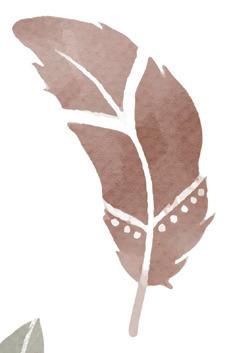
By acknowledging the past and re-learning who we are as a Native people, Indigenous Sisters who participate in our programs transform their path to a journey of natural leadership and wisdom built on their ancestral strength gifted to them by Creator.
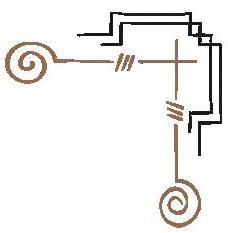
Open Your Eyes and Look Again

To support Indigenous survivors, you must open your eyes and look again—at your own services and agencies, and at Native survivors and Indigenous cultural healing—in a good way. Here is what you could see.
• Settler solutions to rape and abuse ignore that Native women will never be safe while genocidal projects to eliminate
Native peoples persist. It is clear that
Native women are being targeted as part of the genocide that has been against our peoples since first contact.
• The sexual assault response system that is currently in place does not work for Indigenous women. Period. The system was designed to break up our nations and destroy our families. System
Thinking Agencies—agencies where the limitations and needs of service, legal, child protection or other systems take priority over the needs of Indigenous people and families—make surviving harder.
• Indigenous people have a powerful way of changing our own lives and our women and families should be able to have access to it if they want to.
• Indigenous advocates serving indigenous people is best practice. Any
Indigenous woman who approaches a
WCSAP member agency should receive a warm referral to a by and for Indigenous organization, such as Mother Nation.
• Mainstream programs cannot meet all the needs. None of us can. Offer everything you can. But we need you to understand that Native communities have resources and knowledge that you do not know and do not have and cannot provide. Amplify the healing you have already invested in this survivor with a warm referral to additional supports.

• We are here. Indigenous survivors are here and Mother Nation is here. Some agencies will say, “Native women don’t come to our program.” It is not likely to be true, but if it is, you have to do some soul searching about why.
• Some agencies say, “We treat every survivor the same.” You collect demographics that satisfy your funders that you intake Native survivors, but you don’t connect those survivors to the teachings and traditions that they need to heal. So, more soul searching.
• We need more Indigenous advocates who can carry these teachings and work with Native survivors. Support a statewide tribal symposium to train more Indigenous advocates to serve
Indigenous survivors.
• Native women telling their story over and over again in an attempt to find meaningful services is retraumatizing.
Streamline basic intake information so that women don’t have to tell their story over and over and be retraumatized as they search for services and support.
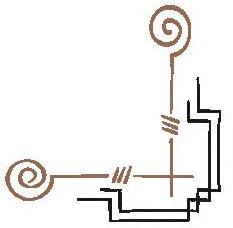
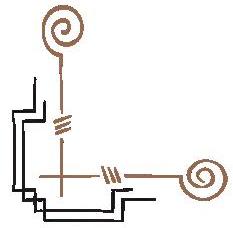
It is difficult to sit among people who continue to ignore Native survivors and Native advocates. Native organizations and community agencies are frankly growing weary of it. But this dynamic is not inevitable. It is not natural. It is the direct result of generations of policy and practice. But the mainstream sexual assault field has all the tools and information it needs to shift the schism between the field and Indigenous cultural services. The mainstream sexual assault field in Washington State could make the commitment to ensure that every Indigenous survivor it encounters is connected to meaningful supports.
If you want to support Mother Nation’s cultural services, you can make a contribution at MotherNation.org/donate
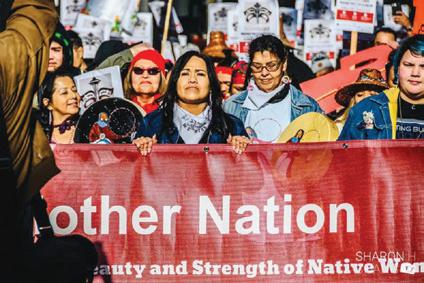
About the Author
On Indigenous People’s Day 2020, Mother Nation Elders, Leadership and advocates including Executive Director/Founder, Norine Hill, Oneida Nation of the Thames; Elder Rose Linda Looking, Assiniboine-Sioux; MartiRai Ramsey, Confederated Tribes of Warm Springs; and Elder Arlene Red Elk, Jamestown S’Klallam met to answer the question, “What do WCSAP programs need to know to support Native survivors?” This article, written by Connie Burk, derives from that discussion.





